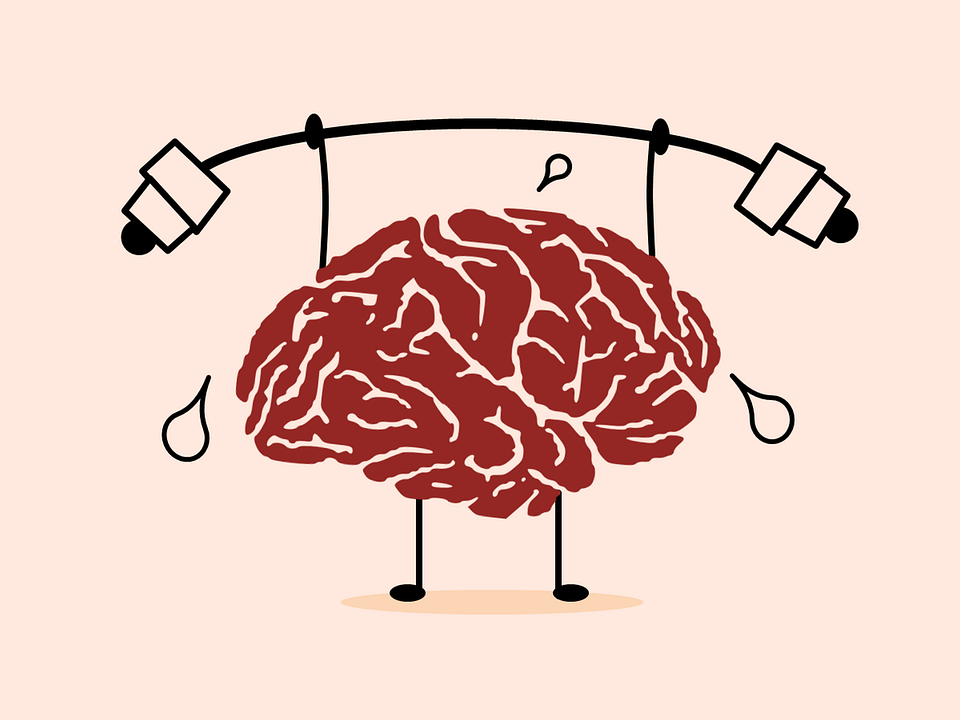The Scarlet T
You must learn a new way to think before you can master a new way to be. — Marianne Williamson
Today’s topic took a bit of courage for me to write about.
It’s hard to put any version of yourself on the Internet that isn’t perfect, our strong social motivations always wanting to portray ourselves from the most flattering angles. So, to publicly inform others of something “negative” about oneself can be rather scary.

After reading that (or hearing something similar from others), most people’s first thought is what’s wrong??, the implication that something is fundamentally wrong with the person—that there is something dangerous or abnormal about this individual.
But when you look at the numbers, approximately 1 in 5 U.S. adults experiences mental illness in a given year (that’s close to 45 million people!). This includes everything from depression and anxiety to drug addiction. And yet, less than half (41%) of those Americans actually receive the mental health services they need—largely due to the mighty stigma surrounding it.
Personally, I am not suffering from depression or anxiety or psychosis, but I am always striving for self-improvement. I want to be more comfortable with confrontation. I want to better manage the stress of graduate school. I want to be happier. So when I learned that Ohio State gives students 10 free therapy sessions, I realized I had no more excuses.
I believed that a “better-me” existed, and this was my chance to help bring him out…
The other day, I was walking with a friend, when he first told me about his recent experience at OSU’s physical therapy clinic, after which, I told him about mine with the mental health services. And although he was very open to my remarks, he admitted that he wouldn’t have been so comfortable sharing about seeing a therapist.
But what is the difference between seeing a physical therapist and a mental therapist? As our technologies develop, we have 
And yet, the stigma against seeking out or talking about mental health services is still very negative. For example, one study looked to uncover the most common stereotypes against those seeking mental health treatment and found that “dangerous and unpredictable,” “blame for their illness,” and “incompetent” were some of the commonly held attributions.
But here I am, pretty much the opposite of dangerous and unpredictable (my calendars have calendars), very motivated and industrious, and relatively competent—I mean, I am in a PhD program… But stereotypes are not only applied by others, but also ourselves. And one of those particularly pernicious (i.e., harmful) stereotypes is that the person with mental illness is to blame for their mental illness.
For example, recent research showed that over 70% of “respondents with a perceived need for mental illness treatment” reported not seeking treatment because they can “handle the problem on one’s own.”
But how ridiculous would it be if 70% of people with a broken hand were like, “Nah—a doctor? I got this.” With mental health, however, there is the falsely applied (yet nonetheless recognized) “reputation cost” of seeking out mental health services, something particularly evident in cultures where “honor” is highly valued (i.e., where there’s a special emphasis on the importance of reputation).
For example, researchers have found that the more people uphold this “culture of honor,” the more likely those people are to report “feeling inferior” if they went to a therapist, and the more ashamed they would feel if they expressed this desire to others.

Currently, though, more people are recognizing the empirical benefits of therapy. Whereas only 24% of people with serious mental illness sought care in 1990, that number jumped to 41% in 2003, and as of 2011, it’s nearly at 60%. In fact, the U.S. government has accredited almost 300 evidence-based practices to help improve one’s mental illness.
Even more to the government’s credit, in 2008, the U.S. passed the Mental Health Parity Law that mandates insurance companies treat behavioral health and mental health with equal coverage (for specifics, see here).
So although I’m a relatively high-functioning individual, with healthy social and professional relationships, I, too, have insecurities, melancholy, and issues that I’m discussing with a therapist. And I must say, that “better-me” I’m always seeking is more quickly emerging.
Sincerely,
jdt
Everyday Psychology: One of the big issues with the stigma around mental health is the labels we ascribe to those seeking it. For example, people often don’t want to go to a psychologist because they don’t want to be seen as “crazy” or having some kind of “psychiatric illness.” Instead, though, try reframing the act as seeking an outsider’s perspective (like a mentor or a counselor) to help you with a “mental challenge” you’re facing and wish to more effectively overcome. Framed in that language, it doesn’t seem so bad, does it? And if so, what was really stopping you from going in the first place?
Brown, R. P., Imura, M., & Mayeux, L. (2014). Honor and the stigma of mental healthcare. Personality and social psychology bulletin, 40(9), 1119-1131.
Corrigan, P. W., Druss, B. G., & Perlick, D. A. (2014). The impact of mental illness stigma on seeking and participating in mental health care. Psychological Science in the Public Interest, 15(2), 37-70.








Seems to me that what upholds ‘cultures of honor’ also upholds all kinds of prejudices – associating only the extremes to the entire group. In this case, it is people thinking therapy to be only reserved for neuroatypical and mentally handicapped individuals i.e. ‘the crazies’.
My first-hand experience with ‘culture of honor’ saw that people are technically sympathetic to those they class as ‘crazy’. But that sympathy is backhanded when GOD FORBID their own kin or someone in their circle is also ‘crazy’ by seeking therapy.
They don’t realize that mental health therapy can be helpful to everyone. That everyone can achieve a level of self-betterment through it, not only those with severe cases. The stigma on the latter group of people therefore suffuses to anyone taking psychotherapy.
With that being said, it’s brilliant of you Jake, someone without any classified mental illness, to take therapy anyway for just a ‘better you’. If more people supported psychotherapy as simply as you did, it would be an excellent way to normalize it. Seeing that ‘normal’ people go for therapy and find benefits would help remove the stigma on people who truly require it.
Great that you had the courage to admit and write this. Will likely inspire courage in many others 🙂
Hi Sobia, thanks again for such a thoughtful response–and the kind words! 🙂 Once more, you provide some great insight on the topic.
One of the things you’re talking about is called the “black sheep effect.” With this phenomenon, when one of our in-group members (i.e., as you put it, our “kin”) does something that could be perceived negatively, we come down on them really hard to show that we don’t consider them part of the group. Presumably, as you describe, something similar is happening to those who seek therapy. It’s sad that there’s even a “repuatational loss” associated with going that prompts this reactoin–as if we all don’t have stressors or struggles that we couldn’t benefit from talking about with someone else.
Hopefully, as you suggest, people will begin to see therapy as not something solely reserved for those only with severe mental illness, but also those who would simply like to live a more fulfilling life. As always, thanks for your input!
“Black sheep effect”. I’ll do some reading on this.
And thanks for all the kind words as well, Jake 🙂
Relatively competent, haha. Great piece, you da man!
Haha Thanks, Joe 🙂 Your kind words always boost my day